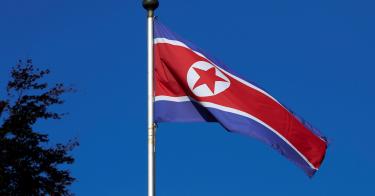Citing human rights abuses, the U.S. Department of State recently designated 10 North Korean entities and individuals for sanctions. The actionacknowledges that, to be successful, any strategy aimed at divesting the Hermit Kingdom of its nuclear arms must also address its deplorable violation of human rights.
This is only the second time that the U.S. government has sanctioned North Korea specifically for its human rights abuses. The first occasion was last year, when Washington listed Kim Jong-Un and 10 other entities for human rights abuses. That action sent a clear that the outside world cares about the Kim regime’s mistreatment of its people.
This month’s round of designations targets the Military Security Command (aka “the military’s own secret police”), individuals who played a role in purges and executions of Party Members, the person in charge of “recruiting” forced laborers for work abroad, and the minister of labor.
The new sanctions also target some of Kim’s cronies operating outside of the country, including the North Korean consul general in Shenyang, China, and the second secretary at the North Korean embassy in Vietnam. The sanctions will likely bite these out-of-country officials harder, since they had hitherto enjoyed more regular access and use of the U.S. financial system than those inside the country.
While this is the first time the Trump administration has imposed human-rights-related sanctions on Pyongyang, its not the first time the president has tightened the sanctions noose surrounding the Kim regime. Rather, this latest round of designations is a much-needed extension of the administration’s policy of “maximum pressure and engagement,” which has included additional sanctions applied in response to Kim’s continued testing of nuclear and missile weapons.
”Maximum pressure and engagement” cannot be successful – much less hit North Korea where it really hurts – without addressing both national security concerns and human right issues.
These designations were made in response to a requirement laid out in the North Korea Sanctions Policy Enforcement Act passed by Congress in 2016. The Act recognizes the inextricable link between human rights and national security issues in the context of North Korea. After all, if North Korea were not in the business of oppressing their people, they might not be able to pursue development of their nuclear and missile weapons programs.
The Trump administration has made North Korea a top foreign policy priority. There is, therefore, no reason to believe that the October sanctions will be the last move the administration takes to alleviate suffering in North Korea.
Just last week, the Committee for Human Rights in North Korea (HRNK) released new satellite imagery documenting the vast network of prison camps in the country. This latest report is part of a series of reports revealing the size and scope of political prison camps and ordinary prison camps in North Korea. And the United Nation’s Commission of Inquiry believes crimes against humanity have been committed at both types of camps.
State Department officials have acknowledged that its response thus far to the North Korean gulags has been inadequate, that the prison camps merit further policy attention.
Congress has some work to do, too. A bill to reauthorize the North Korean Human Rights Act passed unanimously out of the committee in the House. It still needs floor action in the House and review in the Senate. The bill provides for offering North Koreans increased access to information, as well as other humanitarian measures.
This first tranche of sanctions offers hope that the administration will shine a spotlight on human rights challenges in North Korea. During his travels to Asia next week, President Trump should reiterate that message: that Washington takes Pyongyang’s human rights abuses quite seriously. The regime must end those abominable practices as surely as it must end its illegal nuclear weapons program.
This piece originally appeared in Forbes



